COPD is a complex disease, and to manage it effectively you need more than just your primary care doctor. In most cases, it takes a team of several medical specialists to provide high-quality care for people with COPD.
While this might seem like a lot at first, each doctor you work with is an important part of a comprehensive COPD treatment strategy. Working closely with all of them is the best way to preserve your health and maintain a good quality of life with your disease.
Your COPD treatment team is there to you manage your disease in a variety of ways; they can help you breathe better, live healthier, and treat any other symptoms and complications you may face. However, this team works best if you take an active role in your treatment and understand what they do.
That's why, in this post, we're going to help you get to know your COPD treatment team a little better. We'll go over each of the different medical professionals involved in treating COPD, as well as what role each specialist plays in the varying stages of COPD diagnosis, monitoring, and treatment.
Our goal is to help you gain a functional understanding of what exactly each member of your treatment team is there to do for you. That way, you can better understand your disease, your treatment plan, and take full advantage of what each professional has to offer.
What Does a Typical COPD Treatment Team Look Like?
Although COPD is primarily a lung disease, it actually affects many different parts of your body, including your heart, and bones, and immune system. It can also lead to a variety of serious health complications, including depression, hypoxia, and heart attacks.
Because of this, it makes sense to have doctors that specialize in a variety of different health issues on you COPD treatment team. Additionally, the doctors you work with are likely to change over the course of your treatment, as your disease progresses and your symptoms change with time.
At a minimum, every person with COPD should have regular visits with a primary care doctor and a pulmonologist. However, every case of COPD is different, and the type of treatment you need will depend on your medical history, your symptoms, and the severity of your disease.
These are some of the different types of medical professionals that participate in COPD treatment teams:
- Primary care doctor
- Pulmonologist
- Respiratory therapist
- Exercise specialist
- Mental health therapist or psychiatrist
- Nutritionist or dietitian
Your COPD Treatment Team: Who They Are and What They Do
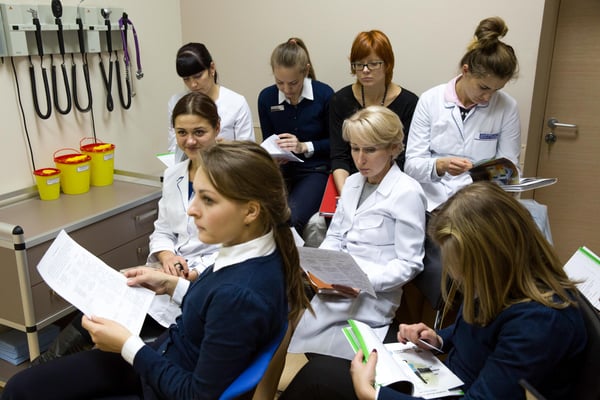
Managing a chronic disease like COPD is no simple matter, and you should familiarize yourself with each doctor in charge of taking care of your health. In the following sections, we'll take a closer look at at each of these specialists so you can better understand what they do as part of your COPD treatment team.
What Do Primary Care Doctors Do For COPD?
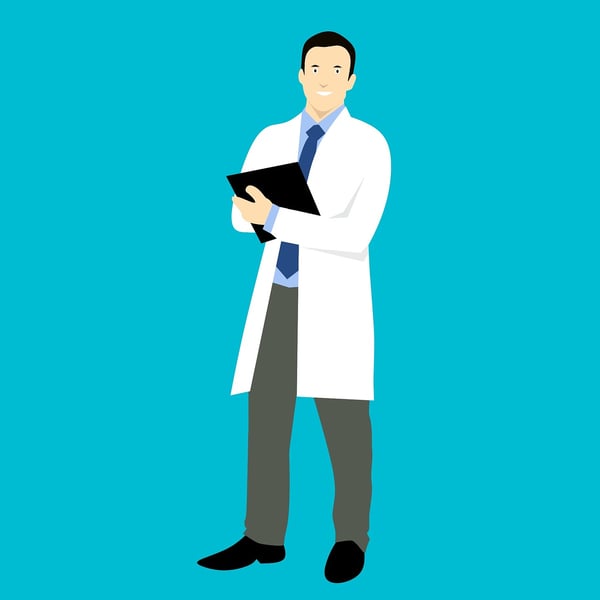
Your primary care doctor is the person you will most likely see and work with the most throughout your COPD treatment. Primary care doctors don't generally specialize in a particular area of medicine, but they play one of the most important, and most involved, roles on a COPD treatment team.
More often than not, primary care doctors are the first ones to recognize the symptoms and actually diagnose COPD. After diagnosis, they continue to play a vital role in monitoring and managing the disease.
In fact, your primary care doctor may be the only doctor you need to see during the early stages of COPD. It's often not until the disease gets much worse, and more serious symptoms and complications appear, that you need to add other medical professionals to the team.

However, primary care doctors often struggle to find the time and resources to provide extensive COPD care, which is why many experts recommend using a “team approach” whenever possible. They believe that multidisciplinary care, which involves respiratory therapists, pulmonologists, and other medical professionals earlier on in treatment, could improve the standard of care for all people with COPD.
In most cases, your primary care doctor is responsible for assembling your COPD treatment team and knowing when you should see a specialist. He will also record your symptoms, lung function, and other important measures of health and keep track of how they change over time.
Regular COPD check-ups are generally conducted by your primary care doctor, who will likely perform most of your basic examinations and lung function tests. More specific, complex, or difficult-to-manage issues may be handed off to a more specialized medical professional.
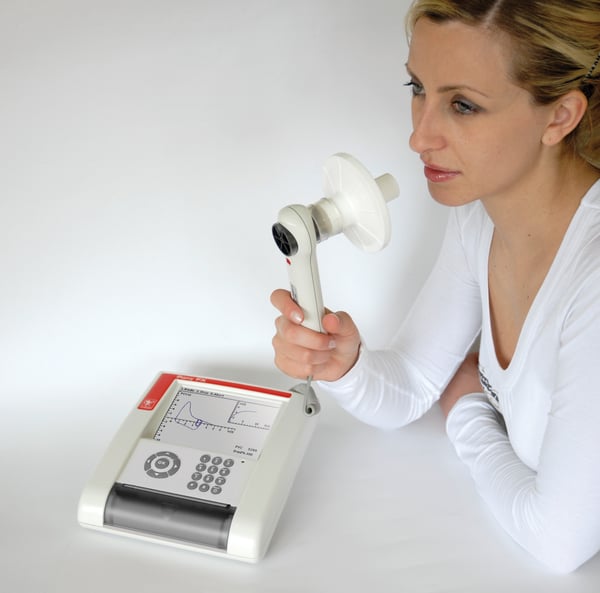
However, many of the practical aspects of everyday COPD management, including implementing your COPD treatment plan, will likely be handled by your primary care doctor. It's his duty to treat new symptoms, prescribe medications, and advise you on the basics of diet, exercise, and lung-healthy living.
Your primary care doctor also helps coordinate the efforts of your whole treatment team and synthesize information from a variety of sources. He uses your medical history, test results, physical examinations, and recommendations from other health professionals to determine the best course of treatment.
Simply put, your primary care doctor is the linchpin that holds your treatment team together. That's why it's so important to work with a primary care doctor you trust and feel comfortable with; that person will likely be your primary caretaker and main point of contact when it comes to your health and your COPD.
What Do Pulmonologists Do for COPD?
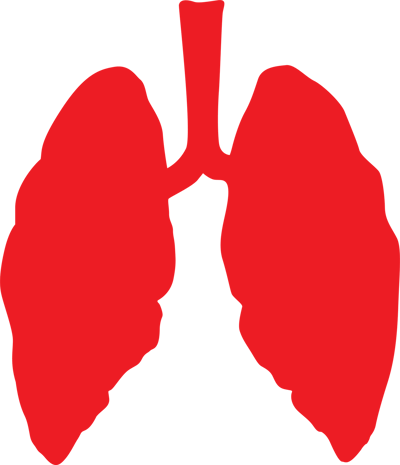
A pulmonologist is a type of doctor that specializes in lung and respiratory health. This profession gets its name from the term pulmonary, which specifically refers to the lungs and respiratory system.
Pulmonologists are experts in both diagnosing and treating lung diseases and other conditions, such as infection and inflammation, that affect the respiratory tract. Some pulmonologists specialize even further to focus on specific respiratory disorders, like asthma or COPD.
Unlike most primary care doctors, doctors who specialize in pulmonology must undergo a significant amount of extra training specifically in pulmonary medicine. On top of a 3-year residency training in general medicine, board-certified pulmonologists must also do an additional two-year pulmonology fellowship and pass a standard pulmonology examination.
Many people with COPD, or whose primary care doctors suspect they may have COPD, are referred to pulmonologists for further evaluation. Their extensive experience and training in lung medicine allows pulmonologists to diagnose COPD more accurately and precisely assess the nature and severity of the disease.

When working as part of a COPD treatment team, a pulmonologist is primarily responsible for monitoring their patients' overall lung condition. That means conducting physical examinations, lung function tests, and ordering other types of medial screenings like blood tests, chest x-rays, and CT scans.
One of the most important skills pulmonologists have to offer is their expert ability to interpret test results and track changes in your lung health over time. They also use that information to determine the best forms of treatment to minimize COPD symptoms and slow the pace of lung function decline.

Pulmonologists also look out for signs of other respiratory problems, like lung nodules and infections, which are common in people with COPD. In some cases, pulmonologists also perform lung biopsies—a minor surgical procedure to collect and analyze a small piece of tissue from the lungs.
There is a newer type of pulmonology specialty, known as interventional pulmonology, that focuses specifically on treating lung disorders as part of a multidisciplinary team. This approach shows a lot of promise for improving treatment for chronic respiratory diseases, and makes interventional pulmonologists especially well-suited for COPD treatment teams.
What Do Respiratory Therapists Do for COPD?
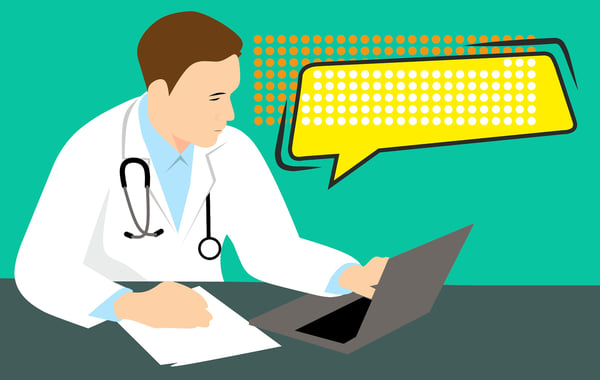
Respiratory therapists are professionals trained specifically to treat people with chronic breathing disorders like COPD. Respiratory therapists can take on a variety of roles, but they often focus on educating their patients to manage the day-to-day struggles and symptoms of their disease.
Whereas pulmonologists primarily prescribe medication and treatments, respiratory therapists help patients put their treatment plan into action. On a COPD treatment team, a respiratory therapist's main responsibility is to help patients breathe better and teach them the skills they need to properly manage their COPD at home.
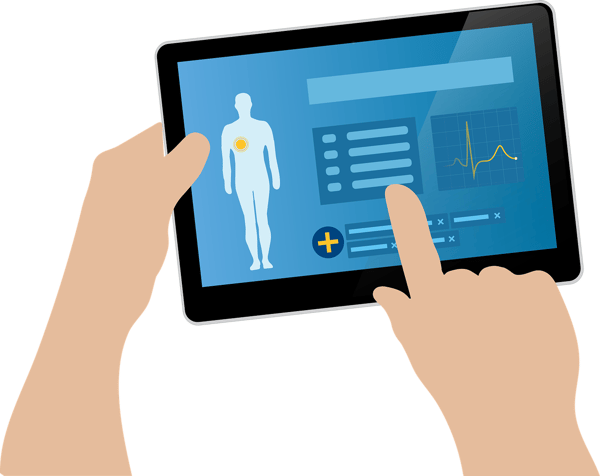
In order to practice, respiratory therapists have to have an associate's degree in respiratory therapy and be licensed by their state. Unlike pulmonologists, respiratory therapists are generally not doctors and don't undergo the many years of medical training and education needed to obtain a medical license.
License requirements for respiratory therapists vary from state to state, but all practicing professionals must complete a two-year respiratory therapy education program at a minimum. However, some respiratory therapy positions require extra education and training, and some professionals have bachelor's or even master's degrees and other certifications.
Experts in respiratory medicine believe that respiratory therapists can play a vital role in patient health, and that they should be included in every COPD treatment team. Some research even suggests that working with a respiratory therapists can reduce patients' risk for exacerbation and hospitalization.
A respiratory therapist can teach you how to use your medications correctly and how to minimize your risk for COPD exacerbations. They can also advise you on how to use oxygen and other as-needed medications more effectively to manage your symptoms throughout the day.
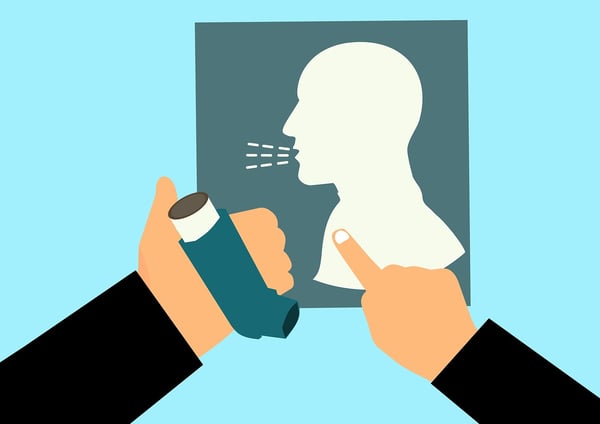
Respiratory therapists offer training in breathing techniques, airway clearance techniques, and other strategies to reduce symptoms like wheezing and shortness of breath. They also provide general counseling for smoking cessation and other lifestyle changes that can improve your COPD symptoms.
Most of all, respiratory therapists serve as knowledgeable, accessible resources for COPD patients to ask questions and receive support. They are particularly helpful for people with severe breathing problems that cause them to struggle with everyday tasks.
However, having a respiratory therapist on your team is worthwhile even during the early stages of the disease. Whether you're still learning the basics of living with COPD or you're managing serious health complications, a respiratory therapist can teach you strategies for controlling your symptoms and improving your quality of life.
What Do Exercise Specialists Do for COPD?

Working out and staying fit is a major challenge for a large proportion of people with COPD, especially for those in the advanced stages of the disease. Because of this, many patients benefit significantly from working with an exercise specialist like a physical therapist, personal trainer, or exercise physiologist.
In general, exercise specialists are trained to work with people who have physical difficulties and limitations caused by injuries, disabilities, and diseases. This makes them particularly well-suited to treat people with COPD, who often suffer from severe breathing symptoms that make physical activity difficult.
Physical Therapists
Physical therapists help people with COPD by guiding them through movements and exercises targeted at building strength and improving mobility. Their job is to understand your disease, your pains, and your physical abilities so they can help you exercise within those constraints.
Most professional physical therapists have to undergo a great deal of education in order to practice, and most have a masters or PhD in physical therapy. This gives them the expertise to both diagnose and treat injuries and other movement problems, including physical decline caused by COPD.
Physical therapy can be particularly beneficial for COPD patients who suffer from physical disabilities, limited mobility, or injuries like fractures caused by osteoporosis. Some patients have lived sedentary lives because of their COPD symptoms for so long that they need physical therapy to build up the muscle strength they need to exercise on their own.
Exercise Physiologists

While physical therapists focus more on helping patients perform specific movements and exercises, exercise physiologists take a slightly more general approach. Instead of focusing on physical strength alone, they specialize in using physical activity to improve their patients' diseases and overall health.
Exercise physiologists need a bachelor's degree at a minimum to practice, but many job positions require a master's degree or higher. In practice, exercise physiologists do a lot of the same things physical therapists do; they design physical activity programs, coach patients through specific exercises, and monitor patients' progress over time.
However, exercise physiologists generally have less education than physical therapists, who often have a doctorate degree. Because of this, exercise physiologists generally focus their skills on big-picture strategies to improve health and wellness, rather than treating specific injuries.
Exercise physiologists often perform stress tests and monitor measures of their clients' physical health, such as lung function and cardiovascular fitness, to better understand their patients' conditions. Then, they design and implement exercise programs specially tailored to their clients' individual needs and goals.
Personal Trainers

It generally takes much less medical training and education to become a personal trainer compared to the other exercise specialists we've discussed. Personal trainers only need a certification—not a degree—to practice, and personal trainer certification programs are much shorter and much less rigorous than degree programs for physical therapy or exercise physiology.
However, even though personal trainers are not as specialized in treating injuries and diseases, they can still help people with COPD in a variety of ways. For example, a physical therapist can help you kick-start a new workout routine, teach you proper exercise techniques, and provide both physical and emotional support during workouts.
Exercise Specialists in COPD Treatment

Exercise specialists play an important role in COPD treatment because they teach patients the skills they need to stay active in spite of their disease. In many cases, they craft personalized exercise plans for patients and guide them through exercises and other activities to help them achieve their goals.
An exercise specialist might walk you through specific exercises, stretches, and breathing exercises that are appropriate for your physical abilities and medical needs. An exercise specialist can also help you hone your physical technique and maximize your breathing efficiency to stave off respiratory symptoms while you work.
Learning these skills is vital for every person with COPD, since regular physical activity has a major influence on physical health, mental health, and even lung function. By helping you life a more active lifestyle, professional exercise specialists can help you breathe better, get around better, and build the strength you need to live a good quality of life.
Many people begin seeing an exercise specialist when their COPD progresses to the point that light activities like walking make it difficult to breathe. When their symptoms get this bad, many patients struggle to do normal tasks, don't know how to manage exercising on their own, and begin a negative downward spiral into inactivity.
At this point, professional help allows many people with COPD to build the technique and strength they need to walk, do daily activities, and live a more active lifestyle. This allows them to better manage your symptoms and reduce their risk for a variety of other health complications, including physical injury, heart disease, and accelerated COPD progression.
What Do Diet and Nutrition Specialists Do for COPD?

Eating a healthy diet and getting enough nutrients is a major challenge for many people with COPD. Many patients, for example, experience breathing symptoms and chest discomfort that make eating enough at meals a difficult and uncomfortable chore.
In these cases, malnutrition is a real threat that can worsen COPD symptoms and lead to other serious health complications like osteoporosis. On the other hand, COPD also makes it difficult to exercise, which both leads to weight gain and makes it much harder to get rid of excess weight.
Because of this, many people with COPD end up needing to work with a diet or nutrition expert to get their weight on track. These specialist help people with COPD change their eating habits, maintain a healthy BMI, and get the nutrients they need to keep their lungs healthy and strong.
They do this by educating their patients about proper nutrition and what a healthy diet looks like. They also help patients set nutritional goals and design personalized meal plans to help them stay on track.
Dietitians and nutritionists can also help people with COPD overcome specific nutrition-related challenges caused by their disease. For example, they can put together specialized, high-calorie diet plans and eating schedules for patients who normally struggle to eat enough food.
Although the terms dietitian and nutritionist are often used interchangeably, there are some notable differences between the two professions. Most importantly, dietitian is a regulated, legally-certified profession, while nutritionist generally is not.
Dietitian vs. Nutritionist

The main things that distinguish a dietitian from a nutritionist are education andlegal regulations. While one is not necessarily better than the other, dietitians are more heavily regulated than nutritionists in many US states, and must meet higher educational standards.
To practice legally in the US, any professional who calls himself a dietitian has to be registered with the Commission on Dietetic Registration. In order to qualify, dietitians must have a 4-year degree from an accredited degree program focusing on human physiology and nutrition science, 1,200 hours of practical internship experience, and pass a standardized nutrition examination.
However, there are no federal requirements or regulations in the US that restrict who can call themselves a nutritionist. Some states have imposed their own requirements and registration processes for nutritionists, but other states don't regulate the practice at all.
Because of this, dietitians are often considered to be the more skilled and trustworthy of the two specialties. This is not always the case, however, which is why education and experience are the most important factors to consider when you look for a diet and nutrition expert.
In general, dietitians are more likely to have an educational background that qualifies them to offer specific medical guidance to people with serious diseases and health conditions. As a result, dietitians are usually the best choice for technical tasks like designing special diet plans and monitoring their effects.
Nutritionists, on the other hand, are often best suited for more educational and advisory roles. Consulting a nutritionist can be a great way to get practical and personalized diet, nutrition, and general wellness advice.
Pulmonary rehabilitation
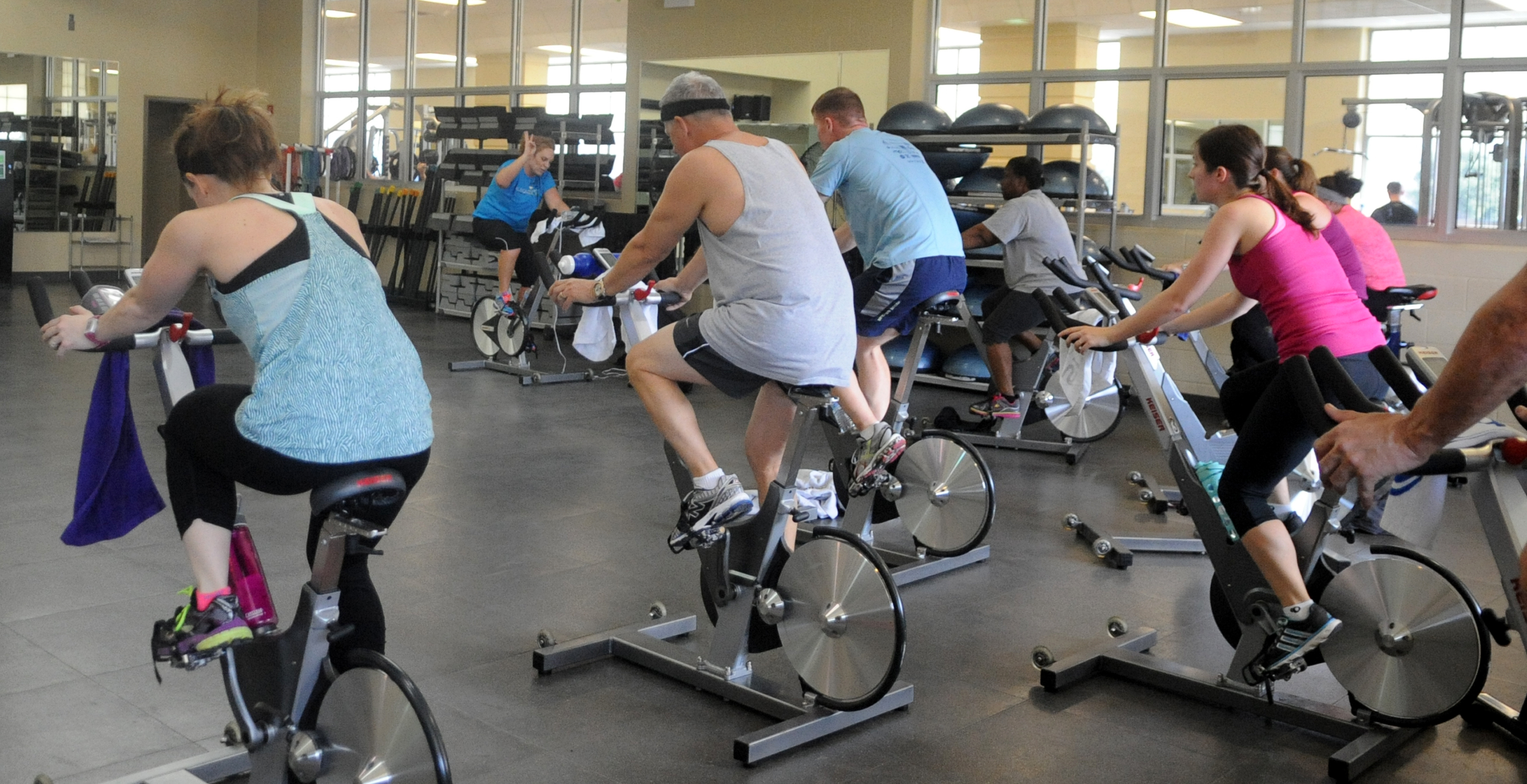 |
| Photo from U.S. Air Force, Senior Airman Kristin High |
We can't talk about exercise and nutrition specialists without also bringing up pulmonary rehabilitation. Pulmonary rehabilitation is a special kind of exercise and nutrition class specially designed for people with COPD and other chronic lung disorders.
Many people with COPD take pulmonary rehabilitation classes to build their physical strength and better manage their COPD symptoms. However, many pulmonary rehabilitation classes offer much more than exercise classes.
The idea of pulmonary rehab is that it takes a multidisciplinary approach to helping people with COPD minimize their symptoms, reduce exacerbations, and improve their quality of life. Most programs include educational seminars, mental health support, and classes on exercise and breathing techniques.
Pulmonary rehabilitation is one of the best ways to learn how to take care of yourself with COPD and live a healthier life in general. It's also a great way to meet and mingle with other people who have COPD and are going through similar struggles.
Research shows that taking a pulmonary rehabilitation class can have significant physical benefits, including increased exercise endurance, reduced shortness of breath, and improved breathing strength and efficiency. In fact, some experts consider pulmonary rehabilitation to be the gold standard for treating chronic COPD symptoms.
However, pulmonary rehabilitation programs are scarce in many places and tend to fill up fast. Because of this, you will need a referral from your doctor to join a pulmonary rehabilitation class, and you might have to wait awhile until a spot for you opens up.
Pulmonary rehabilitation classes often include a variety of professional instructors, including:
- Doctors
- Nurses
- Respiratory therapists
- Exercise specialists
- Dietitians and Nutritionists
In general, most pulmonary rehabilitation classes are led by a team of experts that resembles the makeup of a personal COPD treatment team. However, while your personal team will be by your side throughout the length of your treatment, you will only work with the doctors on the pulmonary rehab team over the course of your six to ten week class.
Click here to read more about pulmonary rehab and what to expect if you attend a pulmonary rehabilitation class.
What Do Mental Health Therapist and Psychiatrists Do for COPD?

Emotional and psychological support is an extremely important, yet often overlooked, facet of COPD treatment. Living with a chronic disease like COPD can be very difficult both physically and mentally, and many patients struggle to cope on their own.
In fact, research shows that people with COPD are much more likely to experience mental health problems like anxiety and depression than people who don't have the disease. One study, for example, estimates that about one in ten COPD patients suffers from clinical anxiety.
Another large study looked at more than 75,000 people with and without COPD, finding that nearly twice as many COPD patients suffer from depression. Because of this, experts believe that mental health evaluation and treatment should be an integral part of every COPD treatment plan
Mental health specialists include psychologists, psychiatrists, and counselors. While there are some differences between them, all of these professionals are specially trained to treat a variety of mental health disorders and other negative psychological symptoms.
Psychologists
Psychologists specialize in diagnosing psychological disorders and conducting talk therapy sessions. Some psychologists further specialize in specific mental disorders or using certain therapeutic techniques, such as cognitive behavioral therapy or dialectical behavioral therapy.
All psychologists have a masters or doctorate-level education in a psychological field and have to be licensed by their state's psychology board. Some psychologists have a doctor of psychology degree, while others have degrees in counseling and other related fields.
Counselors and Therapists
Counselors and therapists do many of the same things that psychologists do, but they usually only need a masters degree to practice. Some are licensed as professional counselors and some are not, and requirements for practicing counselors vary from state to state.
In many places, counselors must complete a standard exam and many hours of hands-on, supervised clinical experience in addition to their degree. Some counselors also earn special certifications in specific areas of psychological treatment, such as marriage and family counseling or rehabilitation.
Psychiatrists

Psychiatrists generally have the most training and education compared to other types of mental health specialists. In fact, all psychiatrists are licensed doctors with extensive training in psychological medicine.
Many psychiatrists offer the same services that psychologists and counselors do, including diagnosing mental disorders and conducting therapy sessions. However, unlike psychologists and counselors, they can also prescribe medications.
Mental Health Experts in COPD Treatment

Your primary care doctor can help refer you to the right specialist based on your symptoms, personal preferences, and psychological needs. Then, your psychiatrist, psychologist, or counselor will conduct a more in-depth examination and determine the best course of treatment.
Seeing any of these professional mental health specialists can help you manage and recover from anxiety, depression, or any other psychological symptoms you experience related to COPD. It can help you work through difficult emotions, learn new coping skills, and serve as a healthy outlet to express your worries and fears.
However, it's important to note that there are many ways to get psychological support without adding a mental health specialist to your COPD treatment team. For example, you could join a COPD support group that meets in-person or online.
You could also participate in any of a variety of therapeutic classes and activities that are proven to have positive mental health effects. These include pet therapy sessions, music therapy classes, and mind-body exercises like yoga and tai chi.
Untreated mental illnesses like anxiety and depression can have a huge impact on your physical health and they can significantly increase your risk for COPD complications and quickened respiratory decline. That's why it's vital to talk to your doctor about psychological symptoms before they get out of hand.
Non-Traditional Options: When You Don't Have Access to a Specialist
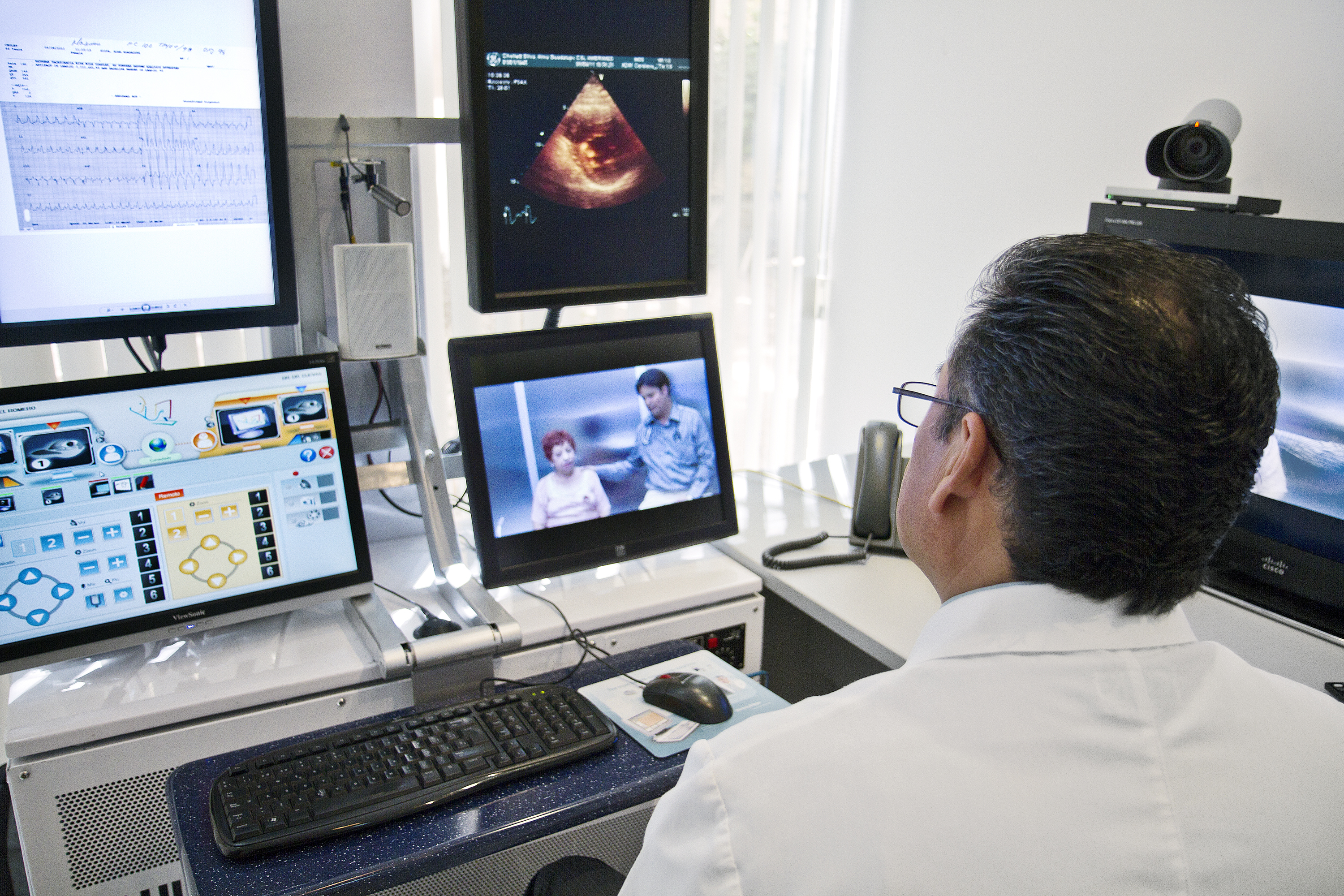
There are many places in the US (and across the world) where health care is scarce and specialist doctors are hard to come by. Because of this, many people with COPD find it difficult or impossible to locally access the doctors and treatments they need.
One study found that nearly forty percent of COPD patients living in rural areas of the US do not have a pulmonologist within 10 miles of their home. Nearly five percent don't can't find a pulmonologist anywhere within a 50 mile radius.
Fortunately, there are a couple non-traditional methods you can use to consult doctors and specialists remotely. Websites that let you schedule online doctor's visits via webcam, for example, can give you access to a variety of medical specialists outside of your local area.
These programs, often referred to as telehealth services, are specially designed to help people who cannot go see the doctor in person. However, while remote doctor's visits are often better than nothing, they can not always substitute for an in-person examination.
You should also be careful to research any remote healthcare providers thoroughly before scheduling a session. Make sure to use a credible, trustworthy program that works with verified medical providers with the correct credentials and experience to do the job.
Here are a couple of helpful resources for learning more about remote health care options:
- Learn more about telehealth and the benefits and risks of remote health care
- Search for remote telehealth services in your area
Conclusion

All of the doctors and professionals who look after you have unique responsibilities and valuable skills to contribute to your treatment. The better you understand what they do, how they do it, and why it's important, the better you can work with them and benefit from their expertise.
Now that you've learned the basics, you can use what you know to take a more active role in your health and the nitty-gritty of your COPD treatment. It's easier to ask questions, seek advice, and find solutions to difficult symptoms when you understand how to utilize your COPD care team.
Each member of your treatment team is just one piece of a larger, multi-faceted approach to managing the many chronic physical and mental symptoms of COPD. If you cooperate with your team and follow their advice, they can help you make major improvements to your health, your COPD symptoms, and your overall quality of life.


.png)



